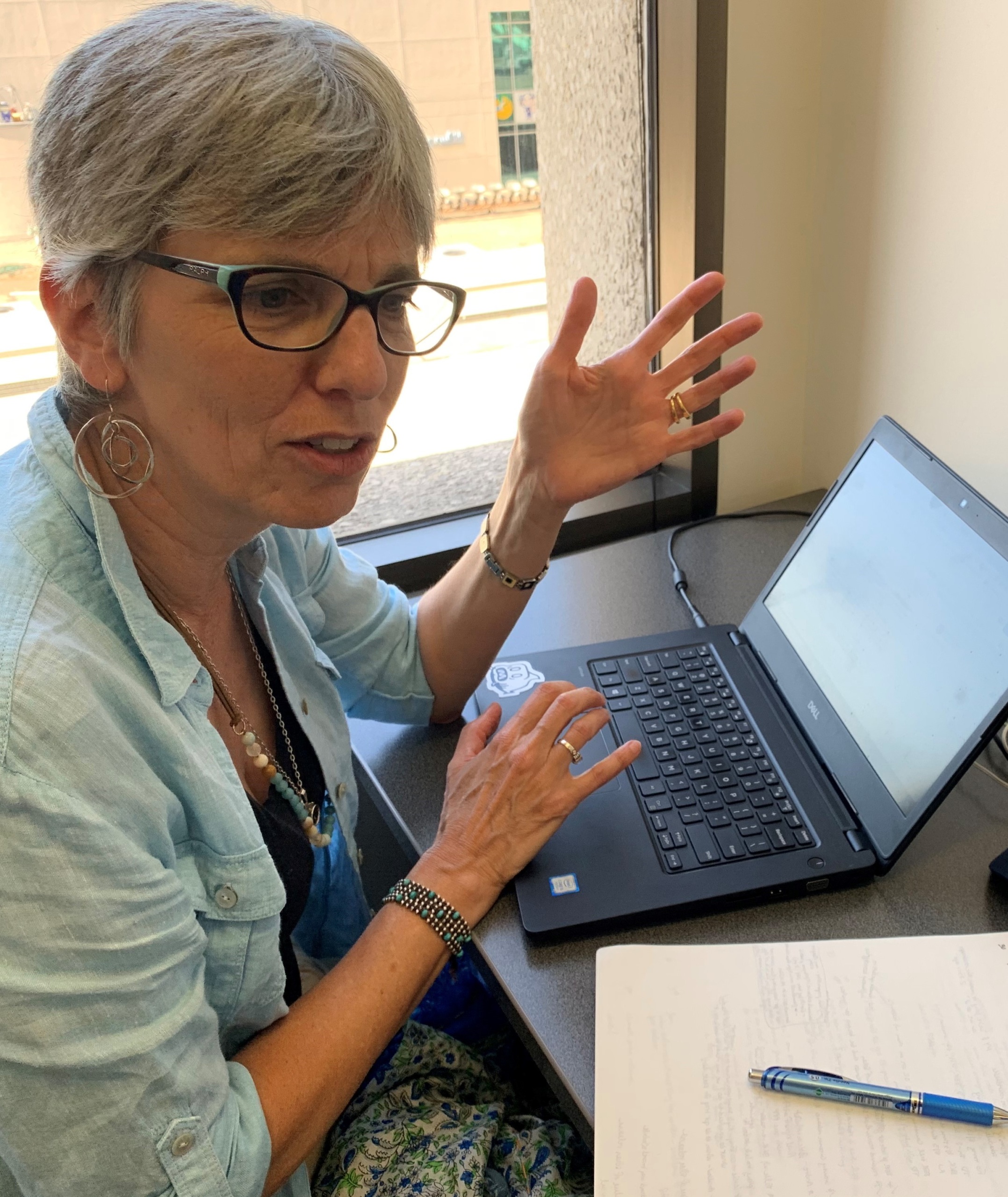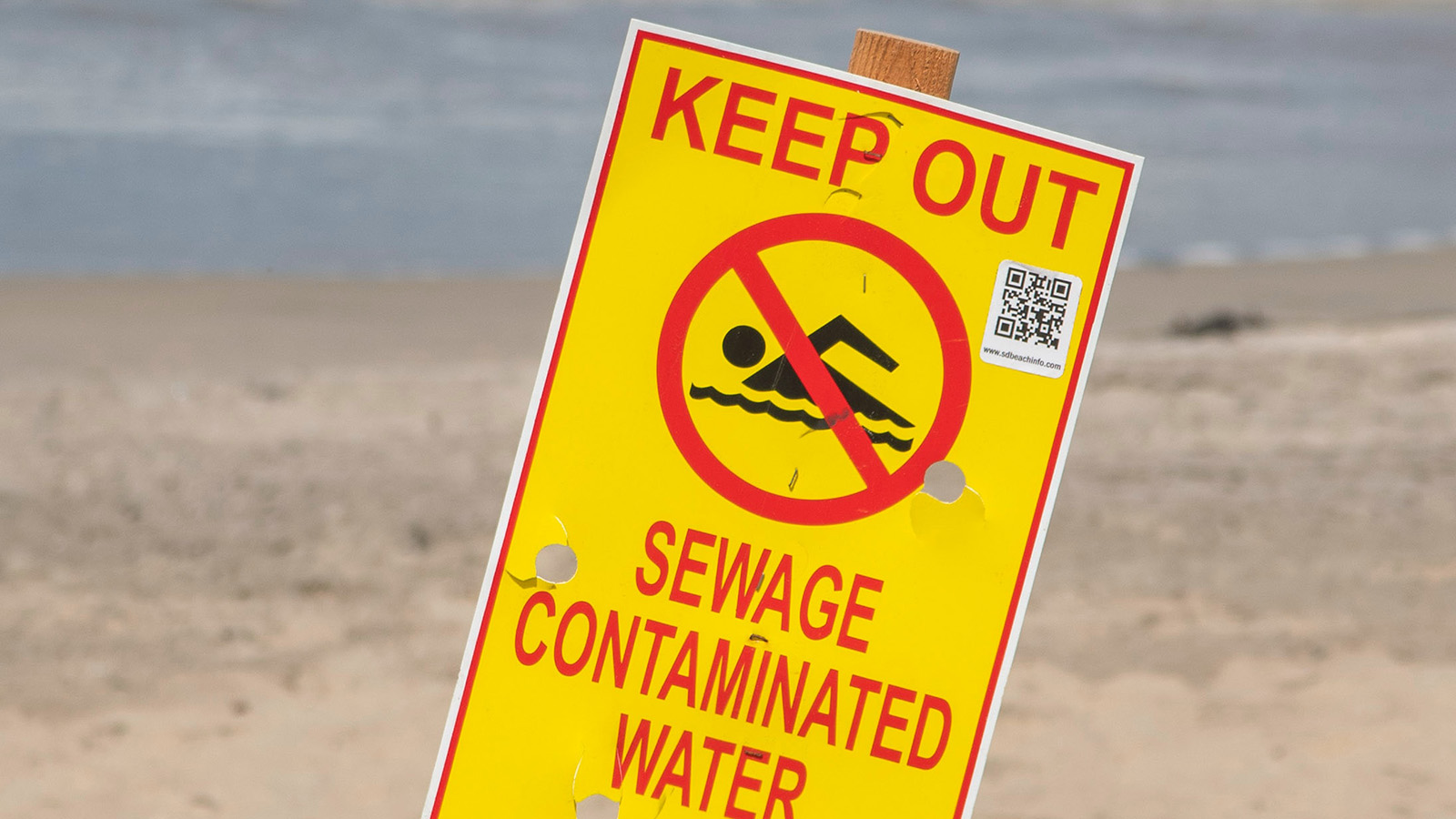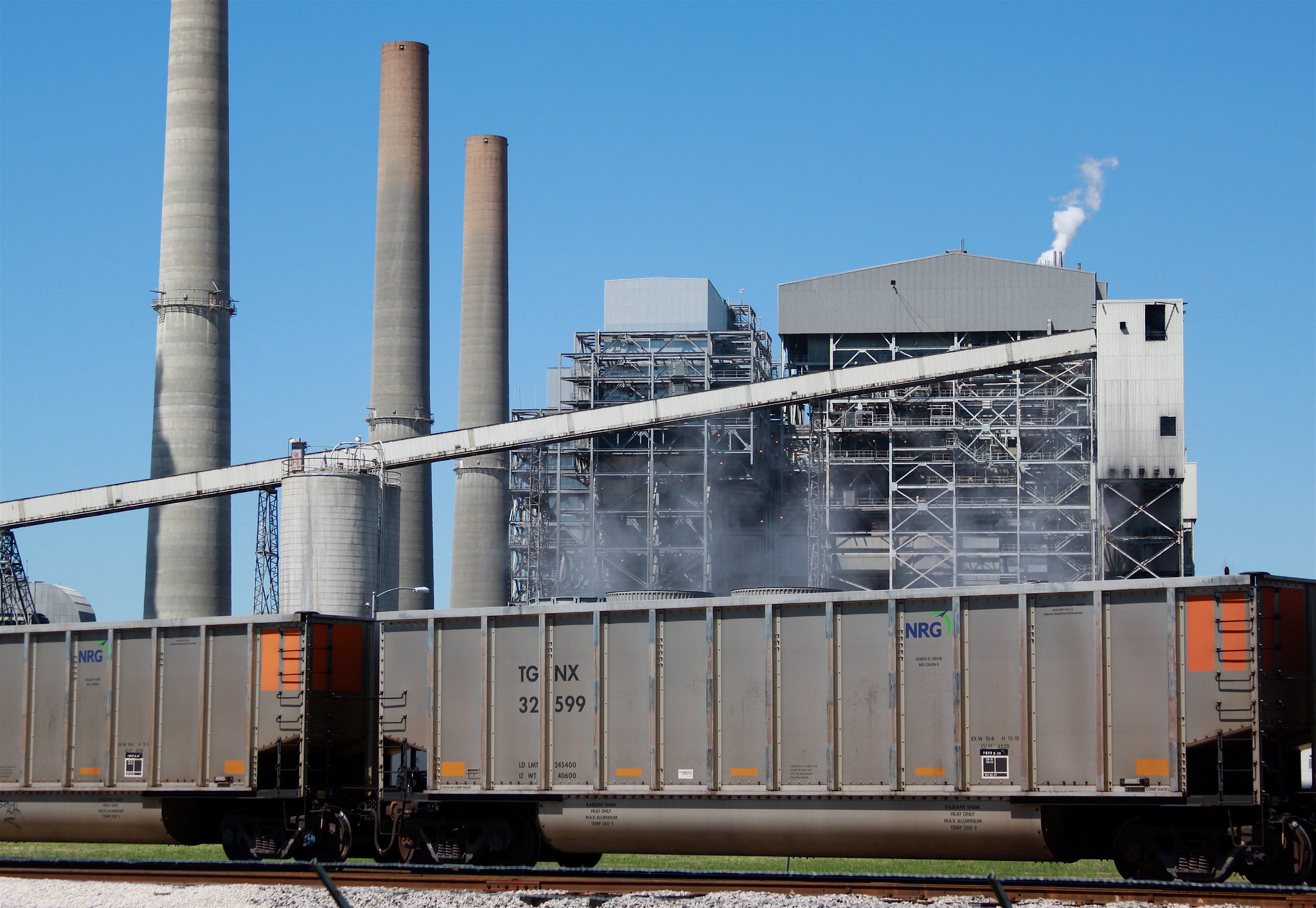
Looking back at 2021
As the calendar flips to 2022, the challenges facing America have rarely felt as stark. And yet, the past year - Frontier Group’s 25th - also brought new momentum in efforts for clean air, clean water, consumer protection, and the protection of nature and the climate. It also provided an opportunity to look back at our own legacy of work providing information and ideas to build a healthier, more sustainable America.
As the calendar flips to 2022, the challenges facing America have rarely felt as stark: a COVID-19 pandemic about to enter its third year, the accelerating disruption of the climate, deepening political polarization, and the persistence of systems of production and consumption that threaten our environment and our well-being.
And yet, the past year – Frontier Group’s 25th – also brought new momentum in efforts for clean air, clean water, consumer protection, and the protection of nature and the climate. It also provided an opportunity to look back at our own legacy of work providing information and ideas to build a healthier, more sustainable America.
Infrastructure money is coming. How should we spend it?
In 2021, America made one massive investment in infrastructure and debated another. For years, Frontier Group has articulated a vision for bold but responsible investment in infrastructure, and that work continued last year … At the very end of 2020, Blueprint for America – written with our partners at U.S. PIRG Education Fund and Environment America Research & Policy Center – outlined principles for decision-makers to use in infrastructure spending, and offered ideas for investments that fit those principles … In March, Transform Transportation described how our car-centric transportation system is hurting us and threatening our future, and laid out a vision for a healthier and more sustainable alternative … Fix it First dug into the argument that repairing our existing roads and bridges should take precedence over expensive new “boondoggle” highway projects (an argument we will continue to make in the coming year as states decide how to spend new federal infrastructure funds) … An Electric Vehicle Toolkit for Local Governments explained how cities and towns can spend federal money to encourage – and model – electric vehicle adoption … Turning to clean water, our Safe for Swimming? report found that more than half of all beach sites tested in 29 U.S. states and Puerto Rico had high enough levels of bacteria to be unsafe for swimming on at least one day in 2020, and called for better infrastructure and stronger clean water laws to protect our health … These reports were covered in media outlets spanning the country, including the Boston Globe, the Chicago Tribune, the Pittsburgh Post-Gazette and Fox News.
How is global warming affecting us, and what can we do about it?
The climate change-stoked Western wildfires of 2021 destroyed lives and homes, and sent smoke plumes clear across the nation, filling the air as far away as New York City with dangerous chemicals and particles. … Trouble in the Air dug into the widespread problem of air pollution, showing that over 70% of the U.S. population experienced at least a month with pollution levels above what the EPA considers “good.” It also laid out all the ways that pollution harms our health, and made clear that there is no safe level of air pollution … For all the damage done by climate change and air pollution, there is hope in the rapid transition to cleaner forms of energy. Renewables on the Rise – written with Environment America Research & Policy Center – found that America produces almost four times as much energy from the sun and the wind as we did a decade ago … We Have the Power looked at America’s vast renewable energy resources, finding that we have solar generation potential equivalent to 78 times the amount of electricity we currently use, and wind power potential equal to 40 times our current energy use … But addressing climate change is going to require more than new technology. Carbon Pricing 101 explained what it means to put a price on carbon, and how that would help us reduce emissions and fight global warming … These reports received coverage from media outlets including the Las Vegas Sun, Oregon Public Broadcasting, The Washington Post, the Boston Globe, Electrek and Politico Morning Energy.
What is the role of state and local action in solving the problems we face?
Federal action is crucial to facing many of our challenges, but it often comes from states leading the way. In 2021, Frontier Group continued to encourage bold, path-breaking state and local approaches to the challenges we face as a nation. … We wrote about how Texas cities and towns could support and lead the transition to personal and municipal electric vehicles and about how they could build a renewable energy future for their communities … In Pennsylvania, we estimated the clean air and climate benefits of adopting a Zero-Emission Vehicle standard in Cleaner Cars for Pennsylvania. Pennsylvania Gov. Tom Wolf took the first step toward adopting that standard in February, and the proposed regulations are being considered for early 2022 … California’s national leadership in rooftop solar adoption is under threat as you read this update. In 2021, our report, The Environmental Case for Rooftop Solar Energy, served as a reminder about the benefits to land, air and water that rooftop solar provides, while Rooftop Solar at Risk used examples from around the country to illustrate the consequences of slashing compensation for the electricity solar consumers supply to the grid. Both were written with our partner Environment California Research & Policy Center … Lastly, in Oregon, we analyzed statewide bankruptcy data to look at medical debt’s contribution to financial hardship in the state. Our report, Unhealthy Debt, found that more than 60% of the bankruptcies analyzed included medical debt … These reports were covered by numerous state and local media outlets including ABC27 News, Yahoo! News, WFMZ in Pennsylvania and KTVZ in Oregon.
On the blog
On the Frontier Group blog, our staff explore new ideas and the connections between the issues we study and the broader world. Here are some of this year’s highlights:
- For our 25th anniversary, Susan Rakov, Frontier Group’s director, shared our origin story and revealed the threads that connect our work across many issue areas – part of a package of blog posts exploring our history and legacy.
- R.J. Cross produced a vlog that hilariously – and frighteningly – described what happens to the data that love-seekers give to dating apps.
- Adrian Pforzheimer addressed the craze around NFTs, the cool new crypto-adjacent digital artform with a special bonus gigantic carbon footprint.
- Sarah Nick examined how the value of “innovation” in engineering has been co-opted to produce stuff we don’t need, and argued that innovation should focus on designing products and systems to improve our lives and protect the environment.
- Tony Dutzik reflected on America’s culture of convenience and how it impedes progress on important issues like climate change.
- Bryn Huxley-Reicher wrote about how the spread of ticks and Lyme disease, accelerated by global warming, has changed his relationship with nature.
- James Horrox highlighted the health impacts of noise pollution and argued that electric vehicles can improve our quality of life just by being quiet.
- Our staff and interns also explored what America’s obsession with zombie movies can tell us about our own climate anxiety; why you shouldn’t be relieved even though your phone isn’t listening to you; how toxic political discourse and a “politics of purity” get in the way of solving our biggest problems; what we should learn from the Fukushima nuclear disaster 10 years later; and what an antique postcard says about our approach to toxic pesticides.
In other news
Frontier Group began using interactive data visualizations to bring our analysis to the public in new and interesting ways, building tools to explain the growth of renewable energy, widespread air pollution, and the composition and ultimate fate(s) of America’s solid waste … Policy Analyst David Lippeatt participated in an Environment America-led panel discussion about carbon pricing with Peter Marsters of Columbia University’s Center for Global Energy Policy and former U.S. Rep. Bob Inglis of RepublicEn … Associate Director Tony Dutzik spoke with the New York Times about the commuter tax benefit, a program that encourages transit use but needs refinement to protect consumers, and joined panelists from both sides of the Atlantic in a Climate Talk hosted by the New York-based nonprofit 1014, discussing whether the world is ready to actually use the tools we have available to protect our climate and the environment … Finally, Policy Analyst R.J. Cross’ work on auto loans, which began with the 2019 report Driving into Debt, continued with interviews for two Consumer Reports articles about the problems with car loans and an analysis of the most recent government data on the subject.
Seeking the path forward
At the end of 2020, anticipating a new presidential administration and Congress, we proposed a transpartisan agenda of policies that Americans of all political persuasions overwhelmingly support and which would tackle some of our biggest challenges. We called it Moving Forward Together, because together is, we believe, the only way. In 2022, Frontier Group will keep looking for solutions to America’s problems, especially ones that wide swaths of the American people – and by extension, we hope, their leaders – can agree on. In the coming months, look for reports suggesting a new approach to America’s broken system of raising money for transportation and prioritizing how to spend it; detailing the immense potential for putting solar panels on the roofs of giant superstores; examining the benefits of switching to electric buses for our health, the environment and the electric grid; and digging into the problems that arise from our reliance on gas. And we’re just getting started.
Please keep in touch with us on Facebook, Twitter and Medium.
Wishing you a new year full of meaning, wonder and joy,
Susan Rakov, Director
Tony Dutzik and Elizabeth Ridlington, Associate Directors and Senior Policy Analysts
R.J. Cross, James Horrox and Adrian Pforzheimer, Policy Analysts
Sarah Nick and Bryn Huxley-Reicher, Policy Associates
Topics
Authors
Susan Rakov
Managing Director, Frontier Group; Senior Vice President, The Public Interest Network
Susan directs Frontier Group, the research and policy development center for The Public Interest Network. Frontier Group’s work informs the public discussion about degradations to the environment and public health, threats to consumer rights and democracy, and the available routes to a better future. Susan lives in Santa Barbara, California; she has two children, a husband, and a dog, and is an amateur singer/songwriter.
Find Out More

Looking back at 2023

November Newsletter: Cleaner, quieter lawn care

July Newsletter: Safe for Swimming?

